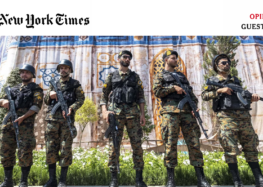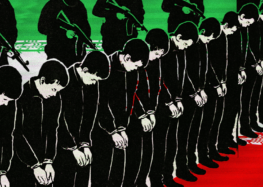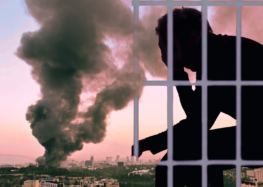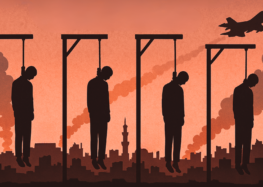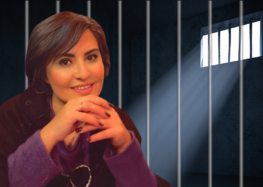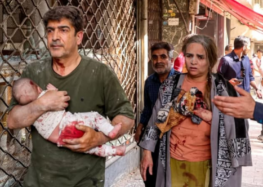Leader’s Pardon of 81 Political Prisoners Shows Arbitrary Nature of Prosecutions
(3 June 2010) The International Campaign for Human Rights in Iran welcomed today’s pardon of 81 political prisoners by Iran’s Leader Ayatollah Khamanei as a positive sign, but said the gesture amounted to an explicit admission that the prisoners had been wrongfully prosecuted, and called for the immediate release of approximately 450 other prisoners convicted or sentenced on the basis of their political beliefs.
Khamenei’s mass pardon is announced even as new arrests of political activists and journalists in Iran continue. The identities of “pardoned” prisoners have not been announced.
“If the Leader can pardon these 81 individuals, in effect confirming they have committed no crimes, he can and should release all those remaining in Iranian prisons who have likewise been wrongfully prosecuted,” said Aaron Rhodes, a spokesperson for the Campaign.
“Otherwise it must be concluded that the pardons are a political ploy aimed at blunting domestic and international criticism of extreme political repression that continues in Iran,” he said.
The Campaign has received many reports of prisoners being coerced into asking for “pardons” from the Leader. In the latest instance, Mohammad Nourizad, a director and film-maker was severely beaten inside Evin prison on 18 May after refusing to seek a “pardon.”
Nourizad was once a loyal follower of Iran’s Leader, but became critical of him after the post-election crackdown. He wrote several open letters to Khamanei and was arrested and prosecuted because of those writings. He has been sentenced to three- and-a- half years imprisonment and 50 lashes. Many other prisoners have also refused to seek a “pardon,” noting they have committed no crimes.
According to the Iranian Judiciary, 250 post-election prosecutions have been completed and sentenced. The Campaign believes at least 200 other political prisoners are being prosecuted or are in temporary detention. Only three judges, Abolghassem Salavati, Mohammad Moghisseh, and Pir Abbasi, have presided over post-election prosecutions.
The Campaign calls for release of all post-election prisoners who are prosecuted solely for their beliefs and opinions. The Campaign believes that these prisoners have committed no crimes and should not have been arrested and prosecuted in the first place.
“It is time to hold responsible and accountable all those who orchestrated these politically-motivated arrests and prosecutions,” Rhodes said.
The Campaign believes the three judges in charge of the prosecution of post-election protestors and dissidents should be suspended and all cases under their jurisdiction should be reviewed by independent judges, in what would be an appropriate and legal judicial process.
Several human rights lawyers told the Campaign that their clients were never given a chance to properly defend themselves, and the judge issued their sentences under the influence of security forces.
Over the past months, some political prisoners have been released on extraordinarily large bails (as high as $800,000) and some of them have been forbidden to leave the country even for professional and family reasons. These bails have functioned as a tool to silence those who have been released.
Several former detainees told the Campaign that their interrogators have regularly called them and asked them not to appear in public or travel, otherwise they will be arrested again. The Iranian Judiciary and intelligence forces should end theses illegal actions against former detainees and cease their surveillance and monitoring of activists, journalists and human rights defenders.
“Released prisoners are not truly free if they are harassed and monitored outside prison,” Rhodes said.

